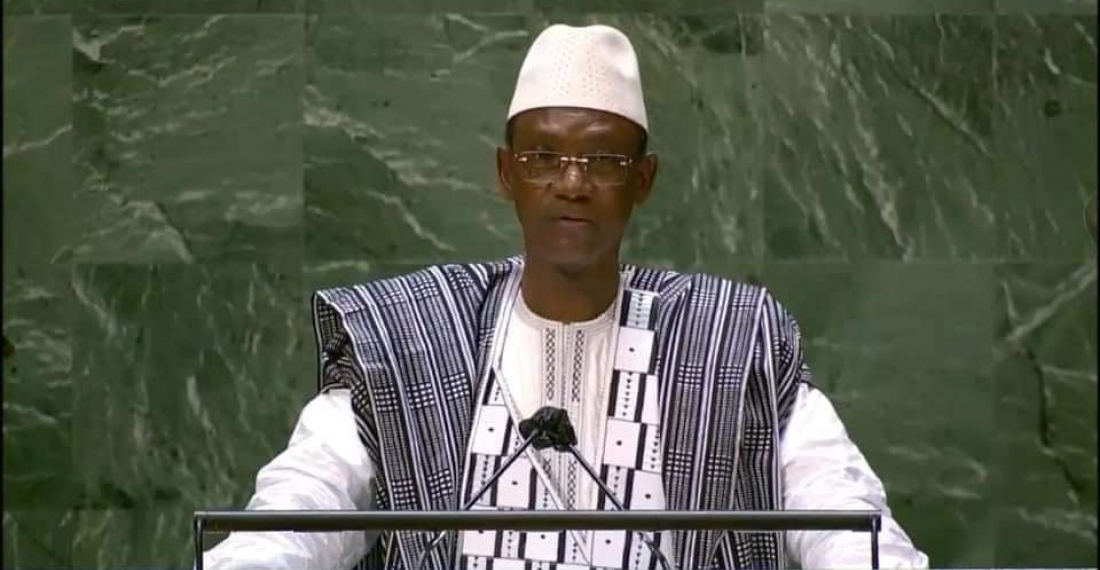During his speech at the United Nations General Assembly on Saturday (25 September), Malian prime minister Choguel Maïga, accused France of abandoning Mali with its decision to withdraw the Barkhane force.
“The new situation born of the end of 'Barkhane', placing Mali in front of a fait accompli and exposing it to a kind of abandonment in full flight, leads us to explore the ways and means to better ensure security in an autonomous way with other partners”, Maïga declared.
It is a question of "filling the void that the closure of certain rights-of-way of "Barkhane" in northern Mali will not fail to create", specified the prime minister, deploring a "lack of consultation" from Paris, and a "unilateral" announcement without tripartite coordination with the UN and the Malian government.
Maïga explained that the security situation in Mali has not improved at all despite the foreign forces on the ground, and the inhabitants continue to suffer from the threats of jihadism. As a consequence, Bamako turned security into its number one priority, especially after the decision to withdraw the Barkhane force.
Notwithstanding, French president Emmanuel Macron "reaffirm[ed] France's determination in [its fight] against terrorism" following the death of a French soldier killed in action in Mali on Friday morning. However, the future of France's involvement in Mali will depend on the latter's decision to work with Russian mercenaries, a move deemed "incompatible" with the maintaining of French troops in Mali by the head of French diplomacy, Jean-Yves Le Drian.
Indeed, the reorganisation of the French military presence takes place as tensions are high between Paris and the Malian junta, which plans to conclude a contract with the Russian paramilitary company Wagner, described as close to Russian power.
Not once did Maïga confirm being in contact with the Russian mercenaries from the private company Wagner. This information was however confirmed by the Russian Foreign Minister Sergei Lavrov minutes before Maïga's speech, while denying any involvement from Moscow. The Malian prime minister also asked to broaden the mandate of the UN's MINUSMA peacekeeping mission in Mali in order to increase its offensive capabilities






